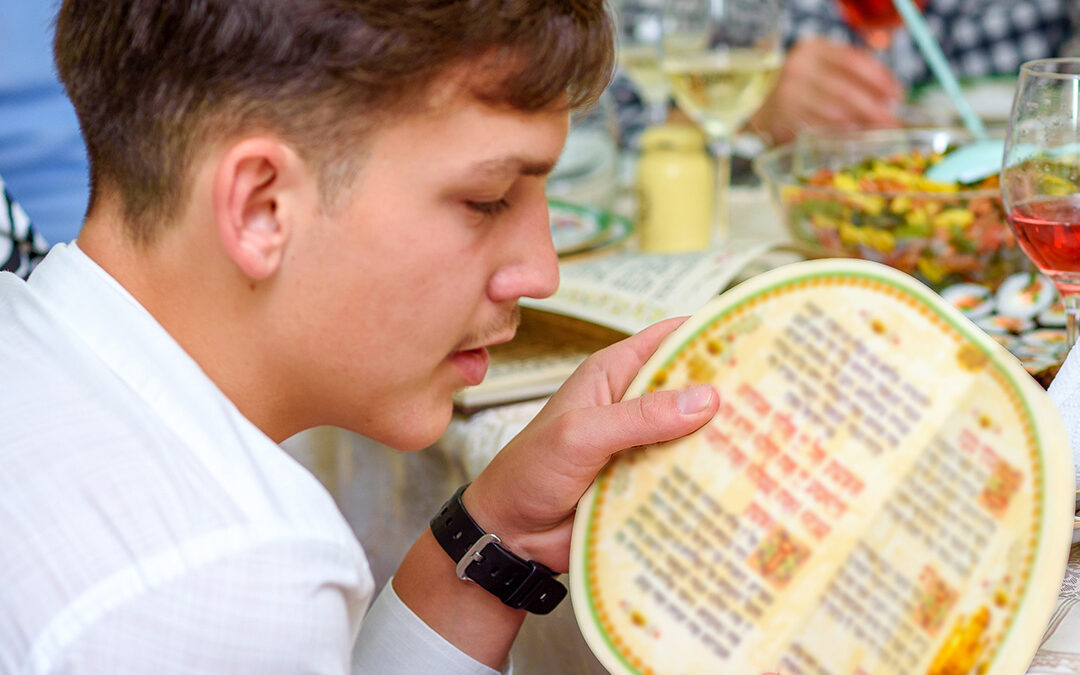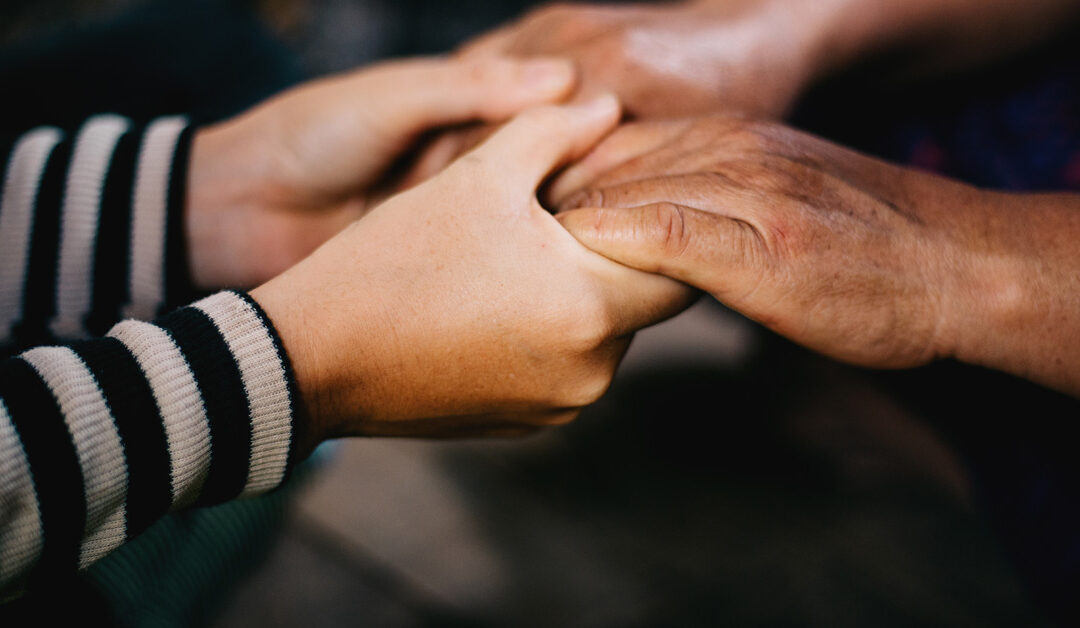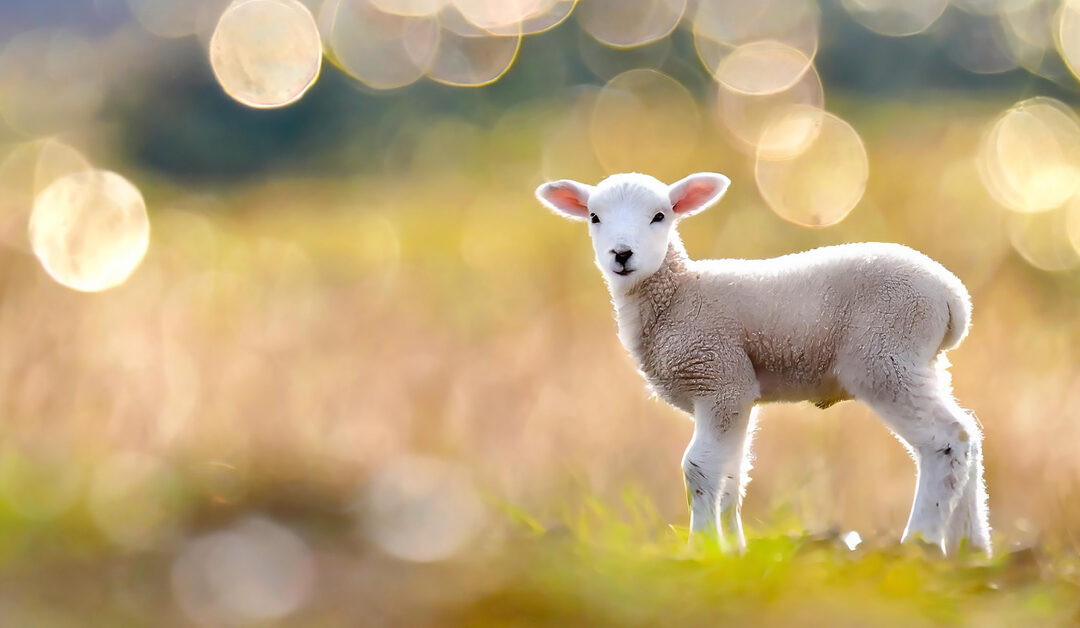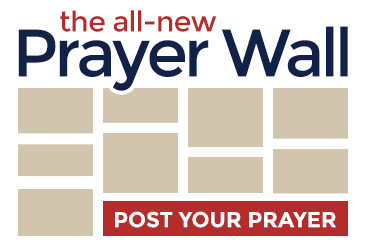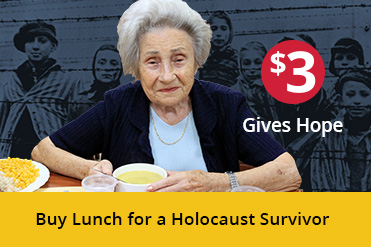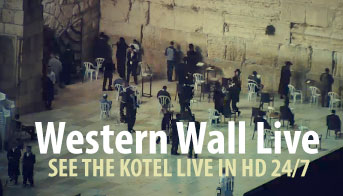And the LORD spake unto Moses and Aaron in the land of Egypt, saying, This month shall be unto you the beginning of months: it shall be the first month of the year to you. Speak ye unto all the congregation of Israel, saying, In the tenth day of this month they shall take to them every man a lamb, according to the house of their fathers, a lamb for an house: And if the household be too little for the lamb, let him and his neighbour next unto his house take it according to the number of the souls; every man according to his eating shall make your count for the lamb.
Your lamb shall be without blemish, a male of the first year: ye shall take it out from the sheep, or from the goats: And ye shall keep it up until the fourteenth day of the same month: and the whole assembly of the congregation of Israel shall kill it in the evening. And they shall take of the blood, and strike it on the two side posts and on the upper door post of the houses, wherein they shall eat it. And they shall eat the flesh in that night, roast with fire, and unleavened bread; and with bitter herbs they shall eat it. Eat not of it raw, nor sodden at all with water, but roast with fire; his head with his legs, and with the purtenance thereof. And ye shall let nothing of it remain until the morning; and that which remaineth of it until the morning ye shall burn with fire.
And thus shall ye eat it; with your loins girded, your shoes on your feet, and your staff in your hand; and ye shall eat it in haste: it is the LORD’S passover. For I will pass through the land of Egypt this night, and will smite all the firstborn in the land of Egypt, both man and beast; and against all the gods of Egypt I will execute judgment: I am the LORD. And the blood shall be to you for a token upon the houses where ye are: and when I see the blood, I will pass over you, and the plague shall not be upon you to destroy you, when I smite the land of Egypt. And this day shall be unto you for a memorial; and ye shall keep it a feast to the LORD throughout your generations; ye shall keep it a feast by an ordinance for ever.
Exodus 12:1-14
There were seven annual feast days that God commanded Moses to institute for the Jewish people, and first and most important and Messianic of all of them was the Feast of Passover. While each of the Feasts has lessons for us regarding the life and work of Jesus, the Passover is particularly clear in this regard. This annual celebration marked the beginning of the religious year on the Jewish calendar, and was a reminder of the deliverance of the Children of Israel from bondage in Egypt.
The first Passover meal was held on the night of the tenth and final plague in the days of Moses. God had sent the great lawgiver to Egypt to guide His people home. Despite all the plagues that had already brought pain and suffering to so much of his country, Pharaoh continued to refuse to let the Israelites leave their slavery and servitude. The final plague would be devastating to the land—the death of the firstborn.
To ensure that their firstborn would not be slain, the Israelites were commanded to kill a lamb and place the blood on the doorposts of their homes. Those homes would be passed over, and death would not enter. There must have been an enormous amount of fear and confusion that first night as the Israelites ate their meal. Moses instructed them to come to their tables with their clothes and shoes on, ready to travel…and they would need to be.
When Pharaoh realized the extent of the destruction Egypt had suffered because of his obstinacy, he finally allowed the Israelites to leave. Soon he would change his mind and pursue them to the Red Sea where the Egyptian army was drowned in the waters that had been parted for the Israelites to escape. The God of Israel had demonstrated conclusively that He was the one true God—and He did not want His people to ever forget it.
That is why He commanded Moses that a Passover meal be held each year “throughout your generations.” Each time the Israelites observed the Passover, they would be reminded that their God had heard and answered their prayers and delivered them from slavery. Their hearts were to be filled with gratitude that God had worked in such a miraculous way, not only freeing them but sparing their children from death. But there is much more to the Passover. It does not just look back to the Exodus, but it also looks forward to the coming of the Messiah.
In a sermon on the Passover the great theologian Charles Spurgeon said, “We commence, first of all, with the lamb. How fine a picture of Christ. No other creature could so well have typified him who was holy, harmless, undefiled, and separate from sinners. Being also the emblem of sacrifice, it most sweetly portrayed our Lord and Savior Jesus Christ. A child would at once perceive the likeness between a lamb and Jesus Christ, so gentle and innocent, so mild and harmless, neither hurting others, nor seeming to have the power to resent an injury.”
When Jesus went to the Jordan River to be baptized by John the Baptist, the evangelist described him this way: “Behold the Lamb of God, which taketh away the sin of the world” (John 1:29). On the night before His crucifixion, Jesus was at the Last Supper—the Passover meal—with His disciples in the Upper Room. Despite knowing all that was about to happen, Jesus said, “With desire I have desired to eat this passover with you before I suffer” (Luke 22:15).
The symbolism of the meal was not fully realized that night by the disciples. Even though Jesus pointed out that the bread and wine represented His body and His blood, and though He had told them He would be killed, they had not really grasped what was about to happen. It was only later that they understood the significance of that last Passover meal with the Savior. Since that time, Christian churches have observed communion in remembrance of what Jesus did and said during that Passover meal.
The Apostle Paul gave this instruction to the church at Corinth: “For I have received of the Lord that which also I delivered unto you, That the Lord Jesus the same night in which he was betrayed took bread: And when he had given thanks, he brake it, and said, Take, eat: this is
my body, which is broken for you: this do in remembrance of me. After the same manner also he took the cup, when he had supped, saying, This cup is the new testament in my blood: this do ye, as oft as ye drink it, in remembrance of me. For as often as ye eat this bread, and drink this cup, ye do shew the Lord’s death till he come” (1 Corinthians 11:23-26).
This year Passover will be observed beginning on April 14th. The importance of this special celebration has not been diminished by the passing of time. All of us need to be reminded of the great work of God in delivering us from the bondage of sin through
the sacrifice of the Lamb of God, His Son, and the promise that He will one day return.
Hezekiah Restores
the Passover
Though God had commanded the children of Israel to observe the Passover faithfully, the Feast was forgotten when the kingdom was divided. According to the account in Second Chronicles, the Passover was not observed between the reign of Solomon and the reign of Hezekiah, a period of some 200 years. When he became king, Hezekiah was determined to return to the worship of the true God. Part of that was to re-institute the observance of Passover. “So they established a decree to make proclamation throughout all Israel, from Beersheba even to Dan, that they should come to keep the passover unto the LORD God of Israel at Jerusalem: for they had not done it of a long time in such sort as it was written” (2 Chronicles 30:5).
This occurred after the northern kingdom of Israel had been conquered by the Assyrians, but Hezekiah nonetheless invited all those who remained in the land to come to Jerusalem for the Passover. Because of the difficulty in getting enough priests sanctified to perform the ceremonies and observances, the celebration was delayed from the first month (Nisan) to the second month. But except for that necessary change, the Passover was observed as God commanded.
It was a time of national renewal and revival. “And the children of Israel that were present at Jerusalem kept the feast of unleavened bread seven days with great gladness: and the Levites and the priests praised the LORD day by day, singing with loud instruments unto the LORD. And Hezekiah spake comfortably unto all the Levites that taught the good knowledge of the LORD: and they did eat throughout the feast seven days, offering peace offerings, and making confession to the LORD God of their fathers.” (2 Chronicles 30:21-22)
The Messianic Symbolism of the Passover Meal
The traditional foods eaten during the Passover seder remind us of the life and work of the Savior:
The Lamb—representing the Lamb of God who came to take away the sins of the world
Unleavened bread—representing the body of Jesus Christ, and His sinless nature
Wine—representing the blood of Jesus Christ
Bitter herbs—representing the suffering of the Savior on the cross
Charoseth—representing the sweetness of forgiveness and salvation
The Feast of Unleavened Bread
“These are the feasts of the LORD, even holy convocations, which ye shall proclaim in their seasons. In the fourteenth day of the first month at even is the LORD’S passover. And on the fifteenth day of the same month is the feast of unleavened bread unto the LORD: seven days ye must eat unleavened bread” (Leviticus 23:4-6).
Following Passover, a week-long celebration known as the Feast of Unleavened Bread begins. The first Passover meal in Egypt was eaten with unleavened bread because there was no time to wait for bread to rise. That was to be remembered throughout the generations, but there is a spiritual significance to this feast as well. Throughout Scripture leaven is presented as a type of sin. The Israelites would scour their homes to be sure that no traces of leaven were to be found.
As Believers we are called to cleanse our lives from sin and worldliness. Peter wrote: “But sanctify the Lord God in your hearts: and be ready always to give an answer to every man that asketh you a reason of the hope that is in you with meekness and fear” (1 Peter 3:15). We still need to be reminded of this truth, and this annual observance carries this message to our hearts.
“Let Them Share”
Each Jewish family was instructed to keep the Passover, but because of the variation in size and resources, not every family was big enough to eat a whole lamb (nothing was allowed to be left over) and not everyone would be able to get a lamb. In those cases, God instructed Moses to tell the people to share what they had with their neighbors. If a family is too small to eat a whole animal, let them share with another family in the neighborhood. Divide the animal according to the size of each family and how much they can eat (Exodus 12:4, NLT).
This is not just something that matters at Passover. Instead, a spirit of generosity and care for the needs of others should characterize every day of our lives. Hundreds of years after that first Passover, when the Israelites returned to Jerusalem following their captivity in Babylon, they faced many challenges. Once the walls had been rebuilt, the people met together to hear the Law of God and celebrate the Feast of Tabernacles (Sukkot). Just as Moses had instructed earlier, Nehemiah commanded the people to share what they had. And Nehemiah continued, “Go and celebrate with a feast of rich foods and sweet drinks, and share gifts of food with people who have nothing prepared. This is a sacred day before our Lord. Don’t be dejected and sad, for the joy of the LORD is your strength!” (Nehemiah 8:10, NLT)
The spirit of Passover is seen every time we reach out in love to help the needy. The spirit of Passover is seen every time we provide food, medicine, warm clothing, and even housing for poor Holocaust survivors. The spirit of Passover is seen each time we touch the lives of the survivors and the families of victims of terror attacks.
Through the support of our friends and partners, the Jerusalem Prayer Team is showing the spirit of Passover day after day— not only in Israel but around the world.


